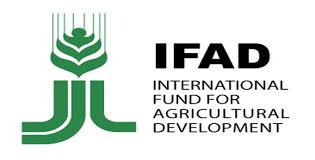The International Fund for Agricultural Development (IFAD) has reiterated its commitment to empowering Nigerian youth across all components of the nation’s food systems.
IFAD Country Director, Dede Ekoue, gave the assurance in Abuja during the Future of Food Conference and the unveiling of the Youth in Food Systems Mapping Report.
She emphasised the organisation’s resolve to collaborate with federal and state institutions in mainstreaming youth participation in agriculture and food systems.
The conference, themed “Empowering the Future: Unleashing Youth Potential for Resilient and Sustainable Food Systems”, was organised by the National Food Systems Task Team.
Ekoue noted that all Federal Government/IFAD supported projects, including the Value Chain Development Programme (VCDP) and the Livelihood Improvement Family Enterprises Project in the Niger Delta (LIFE-ND), were structured to involve youth meaningfully across the agricultural value chain.
She added that the Special Agro-Industrial Processing Zones (SAPZ) were also designed to encourage youth participation in diverse areas of agriculture.
In addition, she said the Youth Agrihub initiatives, to be implemented by the International Institute for Tropical Agriculture (IITA), would focus on engaging young people in areas such as production and processing.
“We are committed to ensuring that young people are not just participants, but key drivers of transformation. This is more than a policy commitment; it is an investment in the future of food security, rural development, and economic resilience in Nigeria,” she said.
Ekoue commended youth networks and development partners for their contributions to the Youth in Food Systems Mapping Report, describing their work as a cornerstone for fostering a more inclusive and prosperous agricultural sector.
Despite ongoing challenges such as climate change, economic hardship, and conflict, she stressed that youth remained vital to the transformation of food systems.
“They bring bold ideas, digital savvy, and a strong commitment to sustainability, but often lack the support systems to lead,” she said.
She noted that the mapping report provides a data-driven guide for understanding youth engagement, identifying obstacles, and shaping strategies to empower young people across the food ecosystem.
(NAN)


